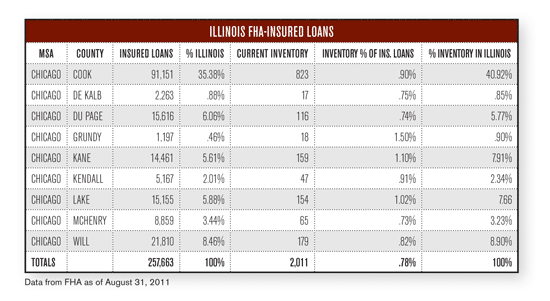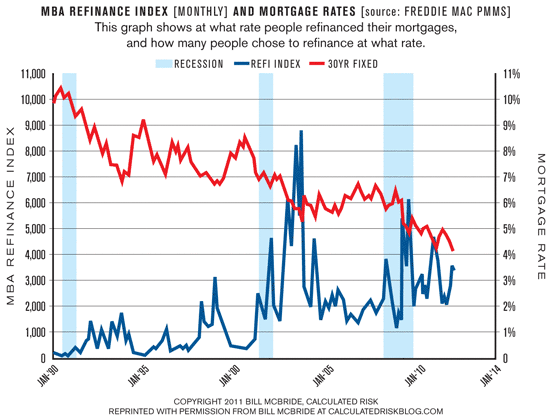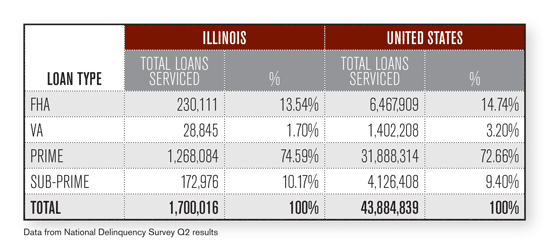By Dan Provost
Craig Achtzehn, branch manager with the River North office of Prospect Mortgage, has one piece of advice for real estate agents hoping to steer their buyers through the mortgage-lending process today: set realistic expectations.
The residential mortgage-lending world has changed dramatically since many buyers last purchased a house. Buyers used to two-week closings or mortgages that required little to no income verification might be shocked by today’s stricter lending process, he said.
Today’s residential borrowers must verify everything, from that $1,000 payment in their checking account to every last bit of their income from the last two years, Achtzehn said. As for the timeframe, borrowers shouldn’t be surprised if it takes them 30 days or more to close their home loans.
“These days, it’s all about expectations,” Achtzehn said. “Real estate agents need to tell their clients that they are going to need a lot more information and documentation to close home loans today. This is no longer an easy process like it was five years ago. Everyone is going to need your tax returns, your W2s, your pay stubs. They are going to have to source your large deposits. This is the way the lending business is today.”
Other mortgage loan officers working in Chicago and its suburbs agree with Achtzehn. The mortgage-lending process has changed dramatically since the days of the country’s financial meltdown.
Agents who don’t prepare their buyers for this are only asking for disgruntled clients. But agents who do set realistic expectations will go a long way toward ensuring that the lending process proceeds as smoothly as possible.
Pre-approve, Pre-approve, Pre-approve
Michelle Bobart, senior vice president of mortgage lending with Guaranteed Rate, said that she understands the frustrations that both real estate agents and their buyer clients feel in today’s homebuying market.
“Realtors are working four times as hard. I feel their pain,” Bobart said. “People aren’t making decisions as quickly as they once were. It used to be that Realtors didn’t have to worry that much about their clients getting approved for loans. There were always products out there that you could slide anyone into, even if their credit wasn’t great. Today, that’s not really the case.”
Agents can prevent this by making sure that their clients are realistic about their financial strength and the amount of money that they need to borrow. This is why loan officers today recommend that buyers always get pre-approved before they start shopping for homes. Of course, this was sound advice even before the economy soured and mortgage lenders tightened their standards. But today, it’s even more important for buyers to know exactly how much they can afford before they start home shopping. This way, when they go house hunting, they won’t be tempted to go after residences out of their price ranges, and won’t make an offer on a home only to find out later that, because of tightened lending standards, they can’t qualify for a home loan to buy that dream residence.
“Realtors need to make sure that their clients get pre-approved. Pre-qualification isn’t good enough. They need to get pre-approved before they start looking at homes,” said David Radke, sales manager for the Chicago region of Standard Bank. “Agents need to make sure that a loan officer has collected all the client’s information as far as their income, credit and asset information. And they need to make sure that their clients realize that everything is being scrutinized more closely than ever. A client may have had a bonus last year. It’s not necessarily the case that this bonus will be considered income today. Lenders today want to see a solid two-year history of that bonus, not just one year, before they count it as income.”
What’s Old is New Again
Today’s tighter lending standards aren’t really new. Achtzehn says that 10 years ago, mortgage lenders also were required to document every source of income that buyers claimed.
Buyers a decade ago routinely complained about the mountain of paperwork that they had to provide to close a loan. It wasn’t until the boom days of the housing industry that lenders started relaxing these standards.
The no-doc and no-income-verification loans became popular. And lenders began reducing the amount of paperwork that buyers had to provide for other loan products, too.
Critics argue that this led to too many bad loans, with lenders giving out too much housing money to borrowers with shaky credit, high debts and incomes that were too low.
So, the new lending rules are actually old ones, Achtzehn says. A problem, however, is many buyers are only familiar with the way mortgage lending worked five years ago. They’re then shocked at how complicated closing a loan today can be.
“I got into the business 10 years ago. This is how it was done 10 years ago,” Achtzehn said. “Then lending got away from that. We are not doing anything that we haven’t done before. You want to get a loan, you have to be able to pay it back. Too many buyers aren’t used to this. I’m going to ask you for just about everything but your blood type. I am going to ask you for everything but the kitchen sink up front.”
The Blame Game
In today’s “new” lending environment, some borrowers are going to face rejection when they apply for mortgage loans. They may not have a high enough income, or perhaps their debt is too high. Whatever the reason, there will be many times in which these rejected buyers blame one person: their real estate agent.
Therefore, mortgage loan officers advise that agents form strong working relationships with smart, veteran loan officers. This was something agents did routinely before the housing boom, but as business boomed, many agents forgot how important it was to build long-term relationships with loan officers.
Radke makes sure before he even fills out a loan application that he knows that borrowers have the financials necessary to close a loan. This, he says, prevents headaches in the future. It’s also one of the perks of working with loan officers who know the business.
“I haven’t had any loans denied,” Radke said. “You know what is going to work and what is not when you pull borrowers’ credit and run their income. I make sure that those numbers are okay. If they’re not, we’re just wasting everyone’s time.”
Bobart says that she’s seen more agents today struggle to convince potential buyers that they can qualify for a home loan. She understands how frustrating this can be to agents, but rushing buyers into applying for a loan is a bad move, Bobart says, because though buyers are ready to purchase, with worries over a weak economy, they back off at the last minute. This costs real estate agents a significant amount of time.
“Buyers worry about so many things today. They worry that they might lose a job,” Bobart said. “When clients feel safe, they’ll make an offer and they’ll follow through on closing a mortgage loan. When they don’t feel safe, they won’t. A buyer is going to be a buyer eventually. People are always going to desire to own instead of rent. It’s just a question of time.”
Have you ever changed preferred lenders?
- Yes (85%, 66 Votes)
- No (15%, 12 Votes)
Total Voters: 78
Available Loans
Many buyers might worry that they’ll struggle to scrape together enough money for a down payment on a single family home or condominium in Chicago, but the reality is that buyers can qualify for mortgage loans today without coming up with down payments of 20 percent. And they don’t even have to take out FHA-insured loans to do so.
Marc Churchill, Chicago sales manager with Mortgage Services III, for instance, says that he can offer buyers loan products that require down payments of as low as 5 percent. Buyers, though, do need solid credit scores to qualify for these loans, he said.
“There is no 20 percent down payment requirement,” Churchill said. “There are plenty of options for buyers who don’t want to put down 20 percent.”
Radke points to the Illinois Housing Development Authority, an agency that, he says, has returned to the housing market with its own grant programs. The authority has provided Radke’s company with the funding necessary to offer a program called Smart Move, which allows buyers to take out a mortgage loan with a down payment of just 3 percent of a home’s purchase price. The program also provides down payment assistance of up to $6,000.
And for those buyers who don’t have perfect credit, FHA loans remain an important option (see our sidebar). Buyers only need a credit score of 580 to qualify for an FHA loan that requires a down payment of 3-and-a-half percent. Buyers need only a 500 credit score to qualify for an FHA-backed loan that requires a down payment of 10 percent.
Because most buyers today have credit scores far higher than 580, this means that FHA loans with low down payments remain an option for the vast majority of Chicago-area borrowers.
This is reflected in the numbers. Churchill says that from 1997 to 2007, only 5 percent of the mortgage loans on which he worked were FHA loans. Today, about 25 percent of the loans he takes on are backed by the FHA, he said.
“It’s a big jump,” Churchill said. “FHA fills the gap for those buyers looking for a lower down payment. But even conventional lenders are offering mortgage loans with down payment requirements as low as 5 percent. So buyers shouldn’t let their down payment fears keep them from looking for a home.”
Veterans Administration (VA) loans and Fannie Mae’s HomePath loan are other government loan options buyers can take advantage of. Although VA loans can be hard to come by – absolutely everything has to pan out at the appraisal of the home to qualify – it allows for little to no down payment, and there is no monthly mortgage insurance. Fannie Mae’s HomePath loan require a down payment of 3 percent, and only apply to properties owned by Fannie Mae. With all the bank owned properties on the market, HomePath loans are available for buyers who have the time and patience to deal with a foreclosure.
Lower down payments are important today. Usually, those buyers who owned homes would count on the profits from their home sales to cover the down payment on their new purchases. As housing values have fallen, though, move-up buyers can no longer count on this source of income to cover their down payments.
No Preconceived Notions
Even with what’s reported in the news today, some buyers are still oblivious based on their previous experiences – or they might just refuse to believe the market and new lending requirements will affect them. Many, for instance, still think they can close home loans in two weeks or less, something that usually isn’t possible in today’s stricter lending environment.
With situations like this still happening, are agents doing their part to make sure that today’s buyers understand the new realities of the mortgage-lending business?
Achtzehn, at least, says that the best of the Chicago-area’s real estate agents are taking the time to educate their buyers, something he said is a smart business move.
“It’s the same way it is with the buyers. Everyone is different,” Achtzehn said. “The high-producing Realtors, the more transactions they have, the more they understand it. Some agents talk more to lenders. They ask the questions. They set an expectation with clients that they can always meet. You might have clients who think they can close mortgage loans in 10 days. If you let them maintain that belief, you are setting yourself up for failure. Today, it’s all about setting the expectations.” C.A.
CONTACTS:
 Craig Achtzehn
Craig Achtzehn
Prospect Mortgage, LLC
312.577.5202
Craig.Achtzehn@prospectmtg.com
 Michelle Bobart
Michelle Bobart
Guaranteed Rate
312.379.3516
mbobart@guaranteedrate.com
Marc Churchill
Mortgage Services III
312.953.5316
mchurchill@msiloans.biz
 David Radke
David Radke
Standard Bank & Trust
773.327.3580
david.radke@standardbanks.com




Thanks for this post. I do agree that for those used to the old process associated with buying a home, expectations should be set up front, because it’s a whole new ball game now. I have a friend looking into some homes for sale in Illinois who has been keeping me updated on the process, and it seems like every little step has become an ordeal, rather than a simple verification of facts. However, she was very pleased with the numerous programs out there to help homebuyers with the financing of their new home, so that’s reassuring at the very least.